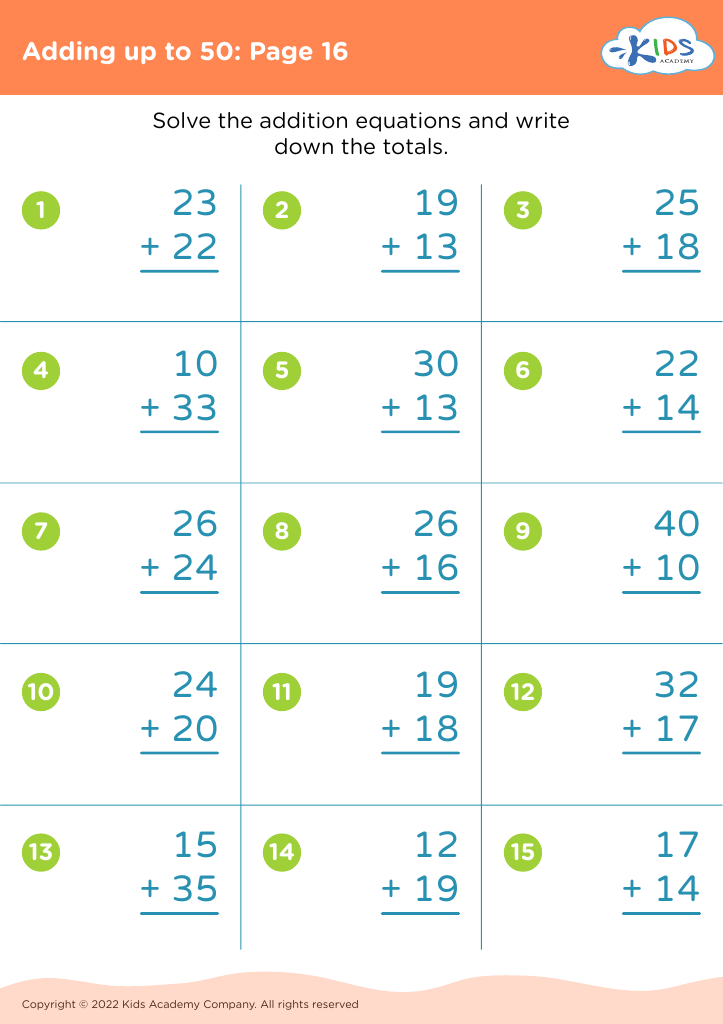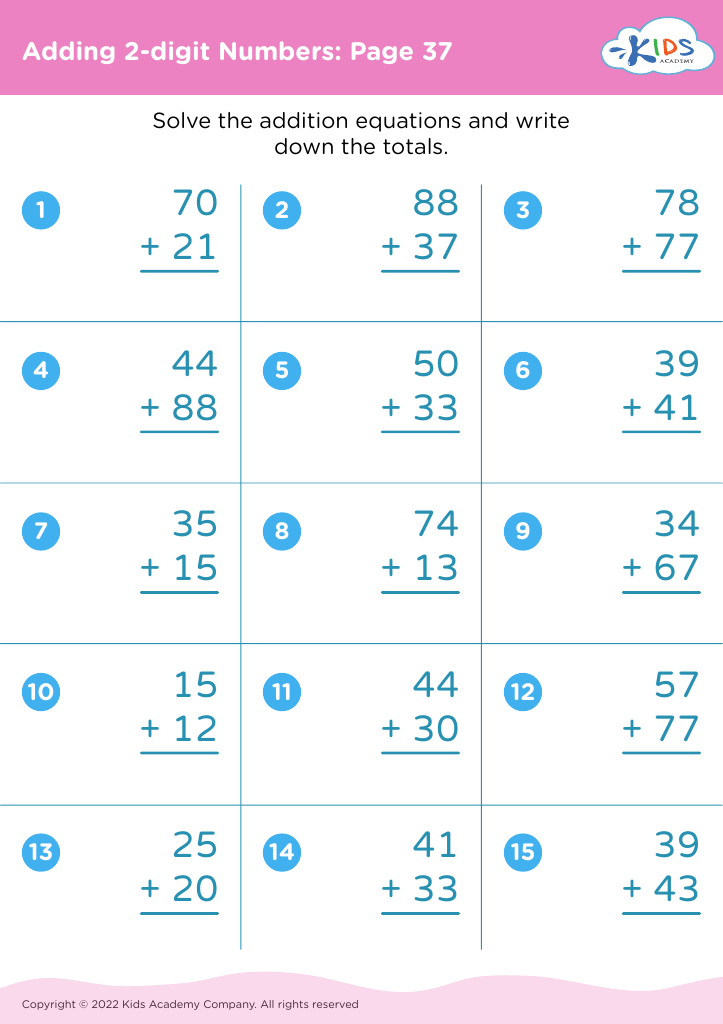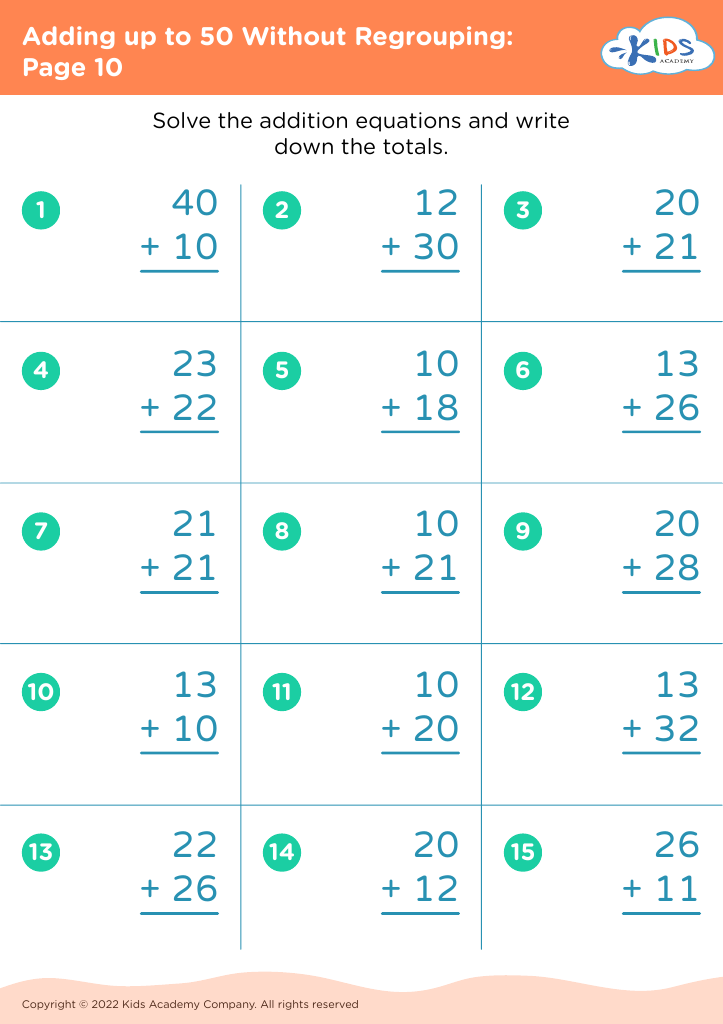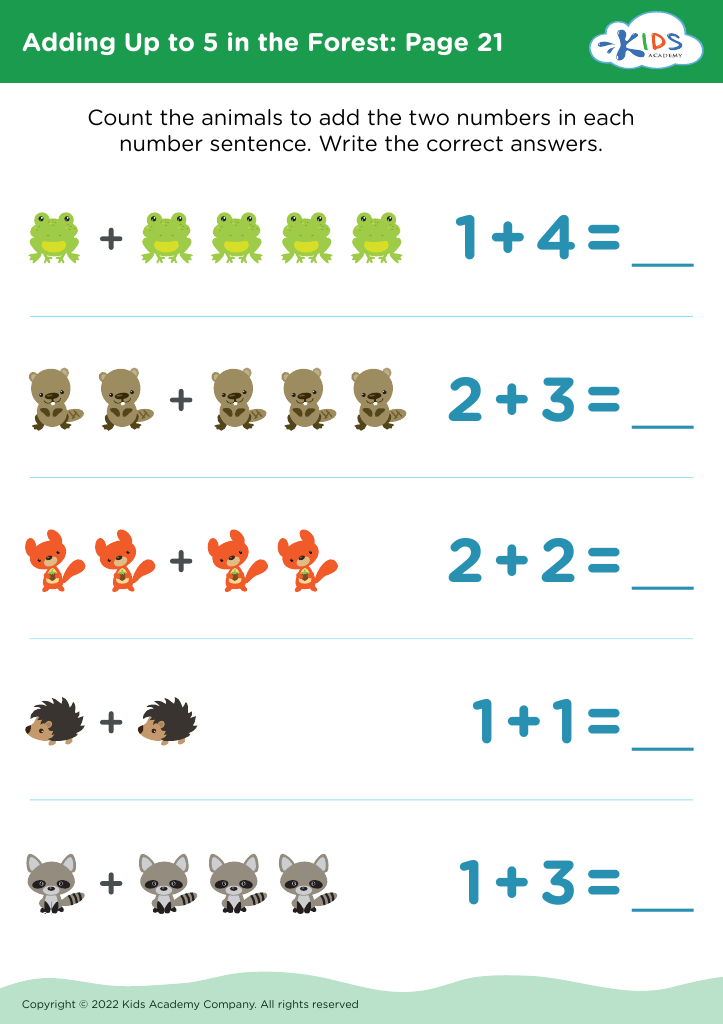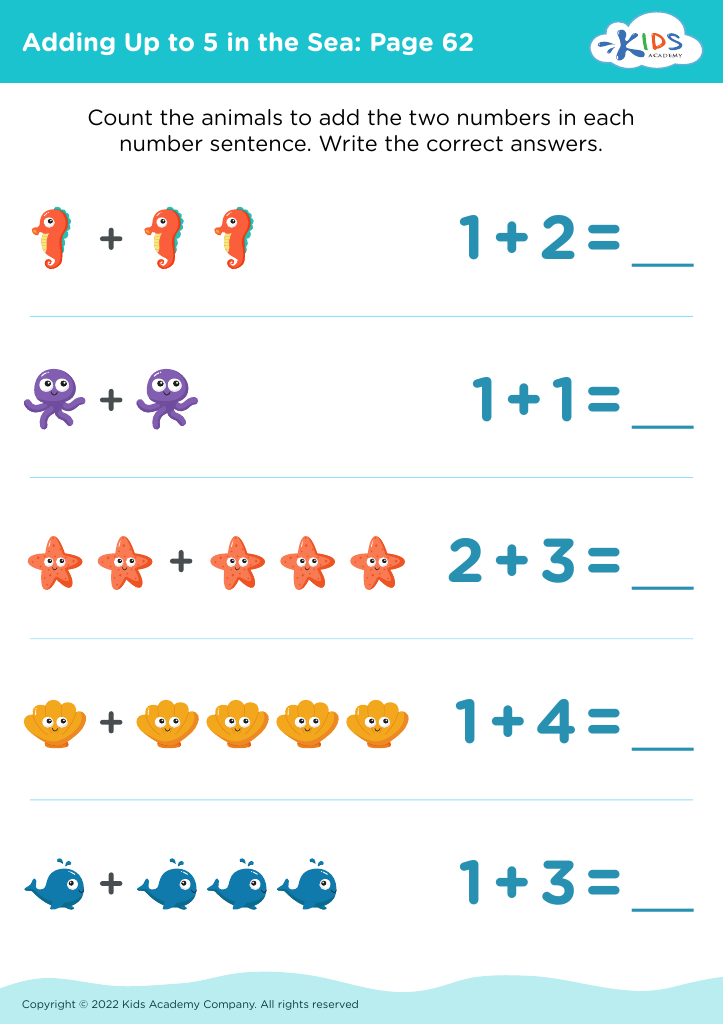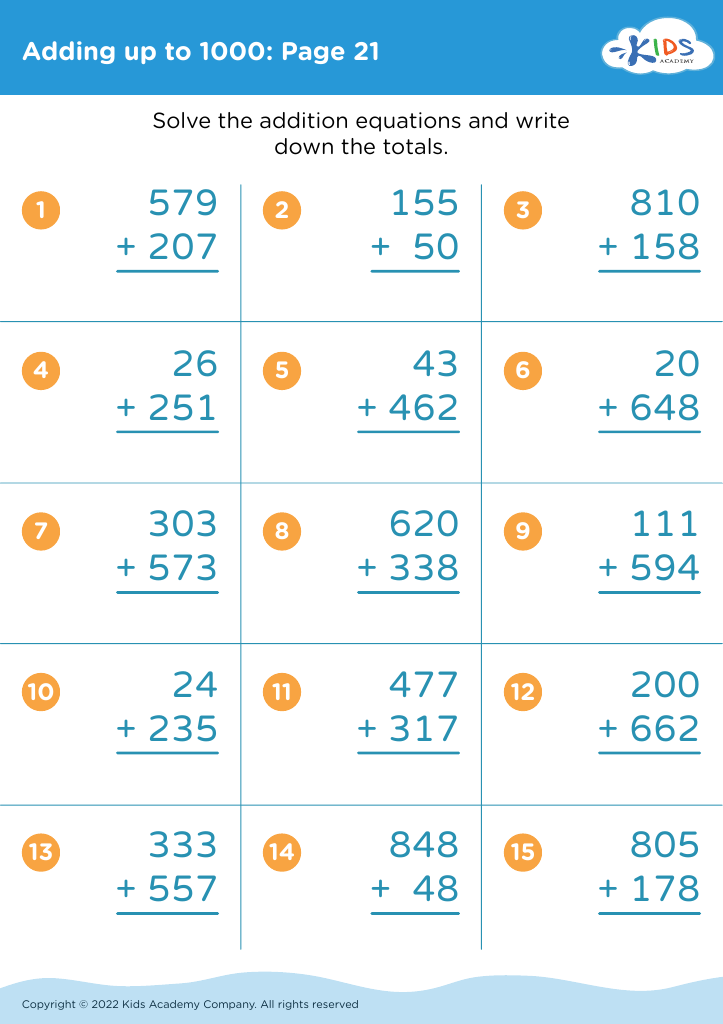Problem-Solving Skills Math Worksheets for Ages 4-7 - Page 3
275 filtered results
-
From - To
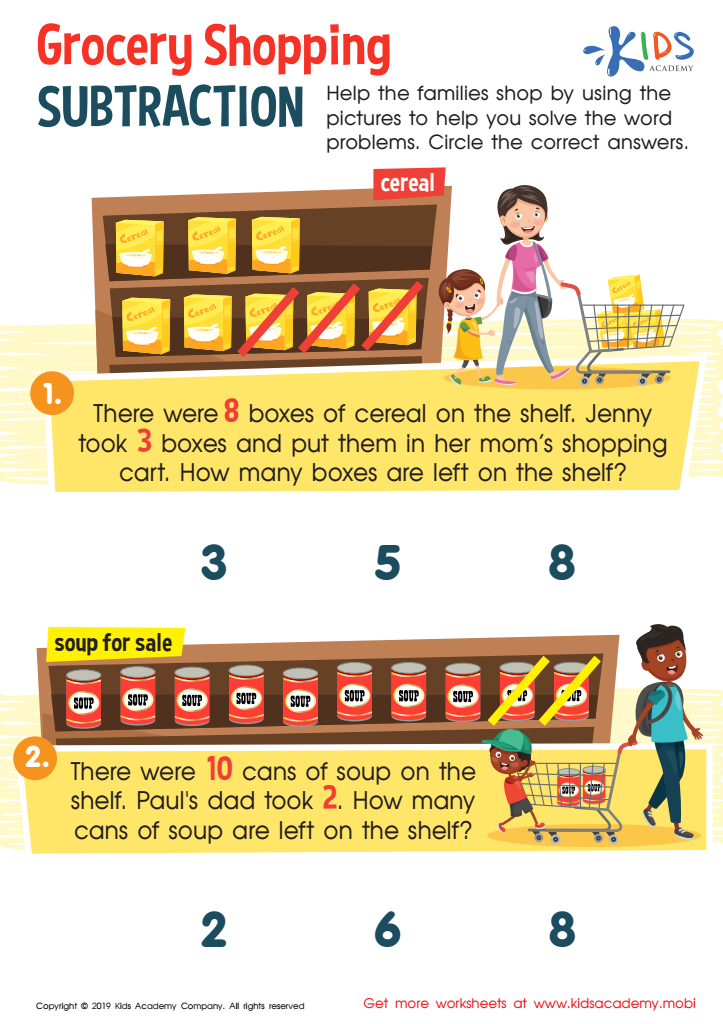

Grocery Shopping Subtraction Worksheet


Halloween Problem Solving Worksheet
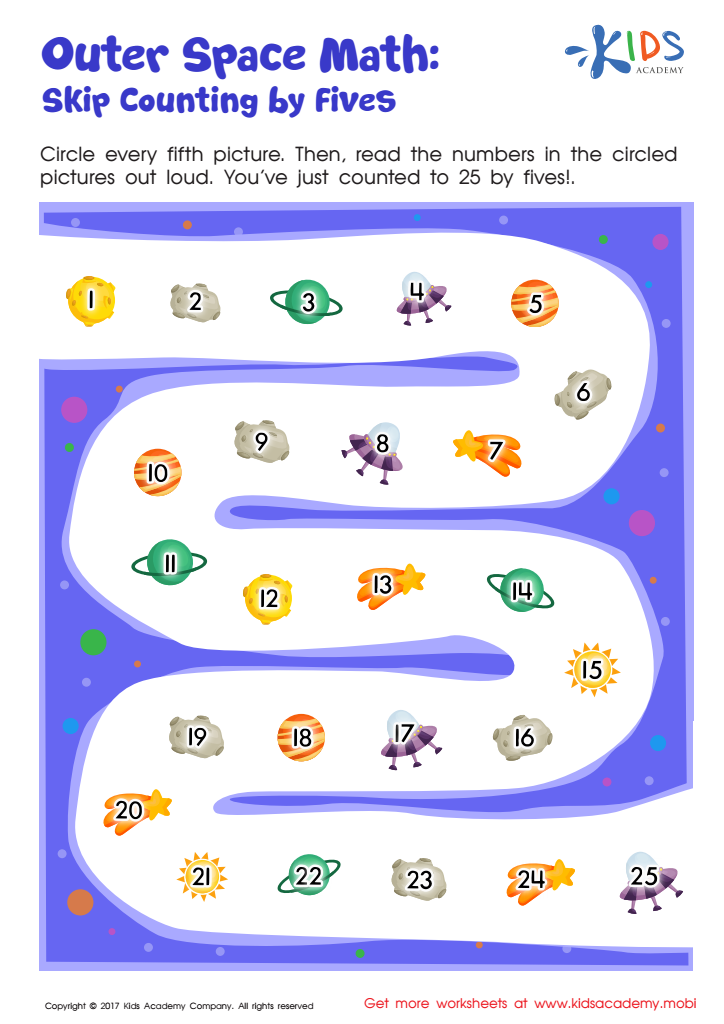

Skip Counting by 5s: Outer Space Math Printable
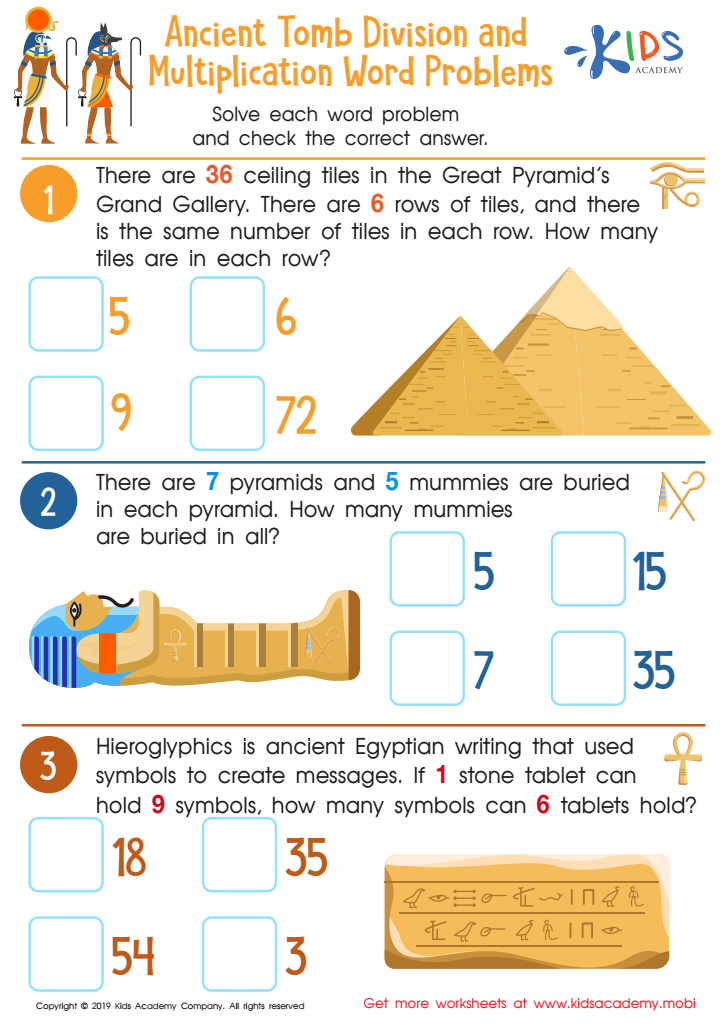

Ancient Tomb Division and Multiplication Word Problems Worksheet
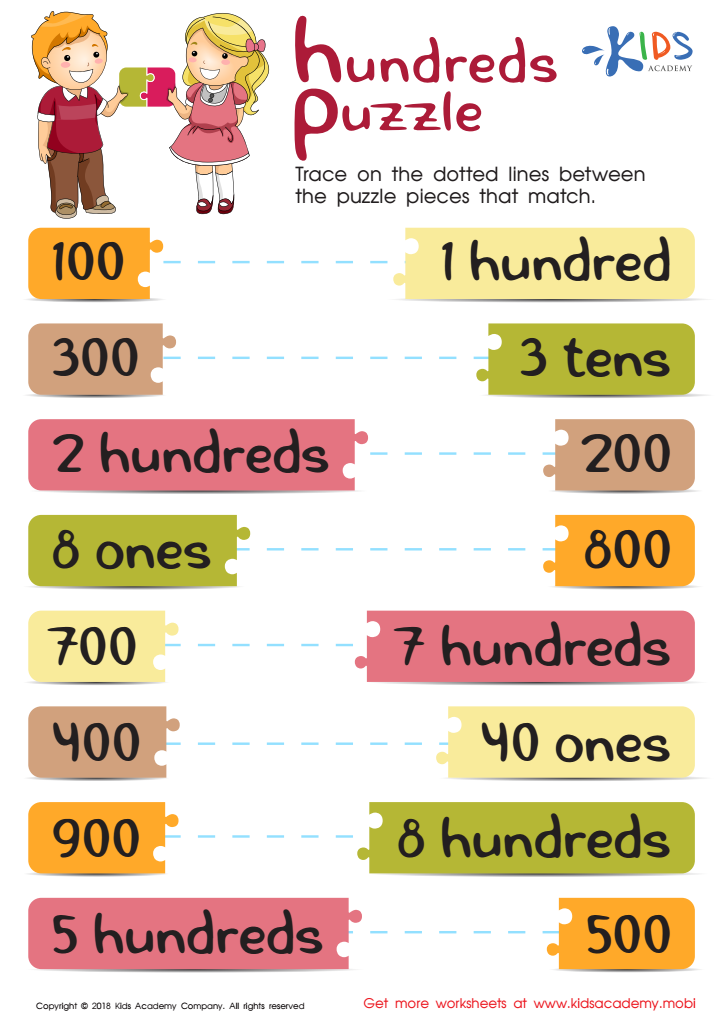

Hundreds Puzzle Worksheet
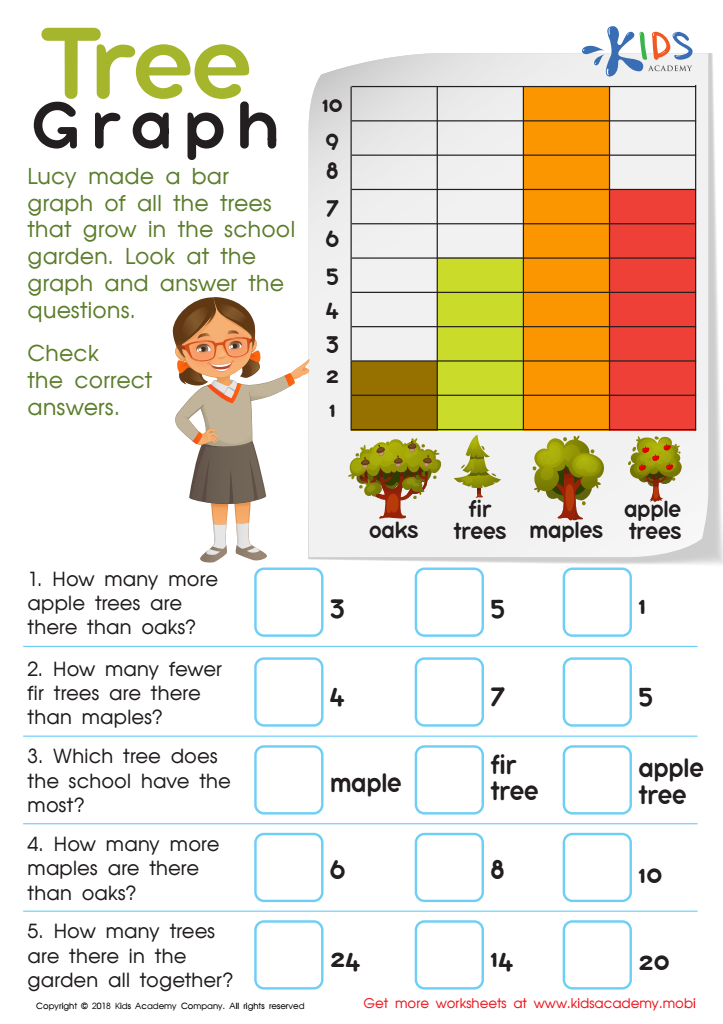

Tree Graph Worksheet
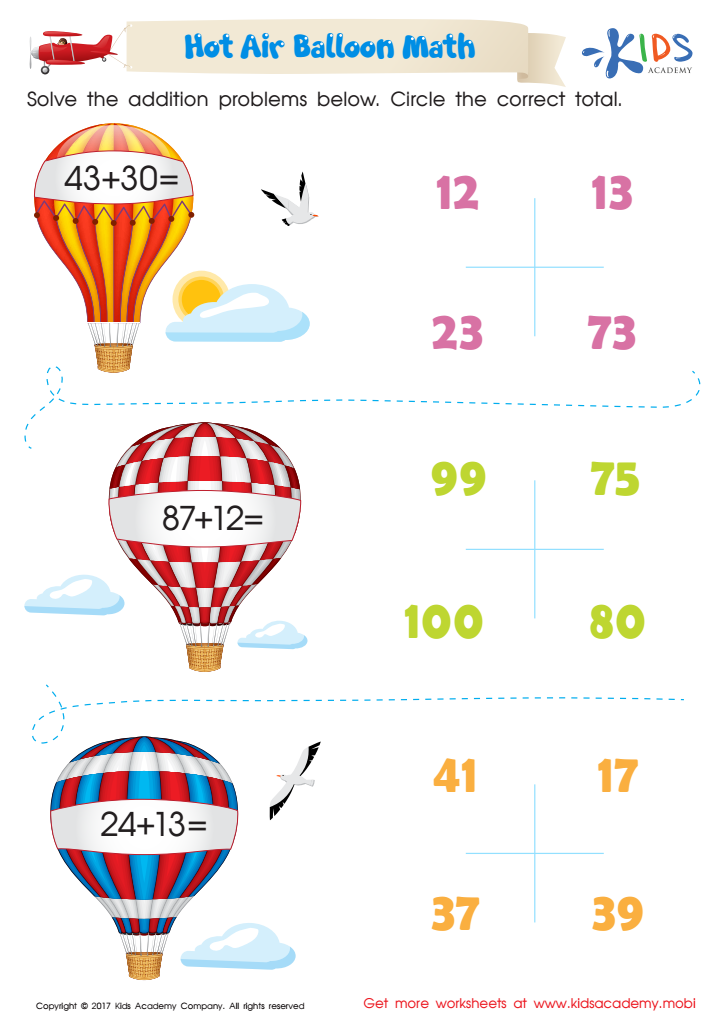

Hot Air Balloon Math Worksheet
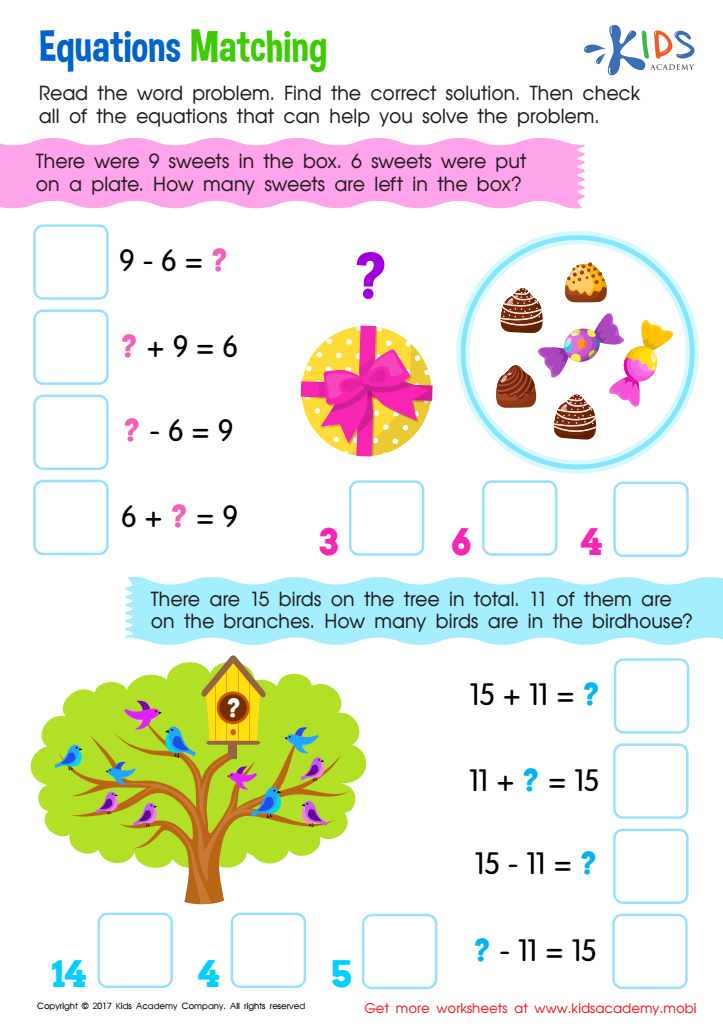

Equations Matching Word Problems Worksheet
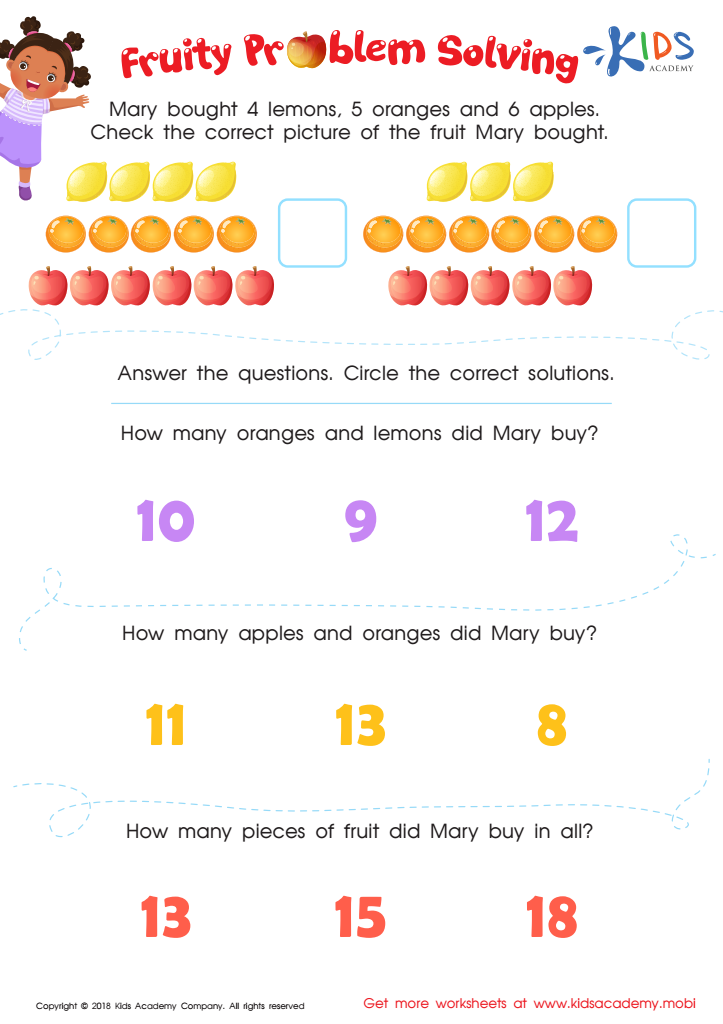

Fruity Problem Solving Worksheet
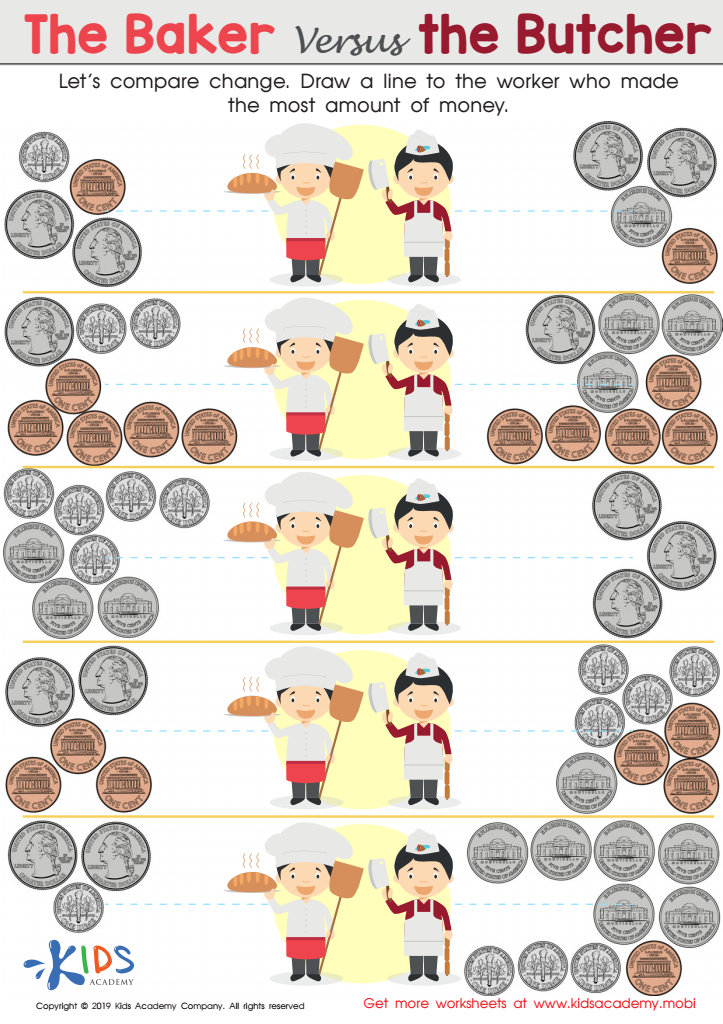

The Baker versus the Butcher Worksheet


Fractions: Sweets Maze Worksheet
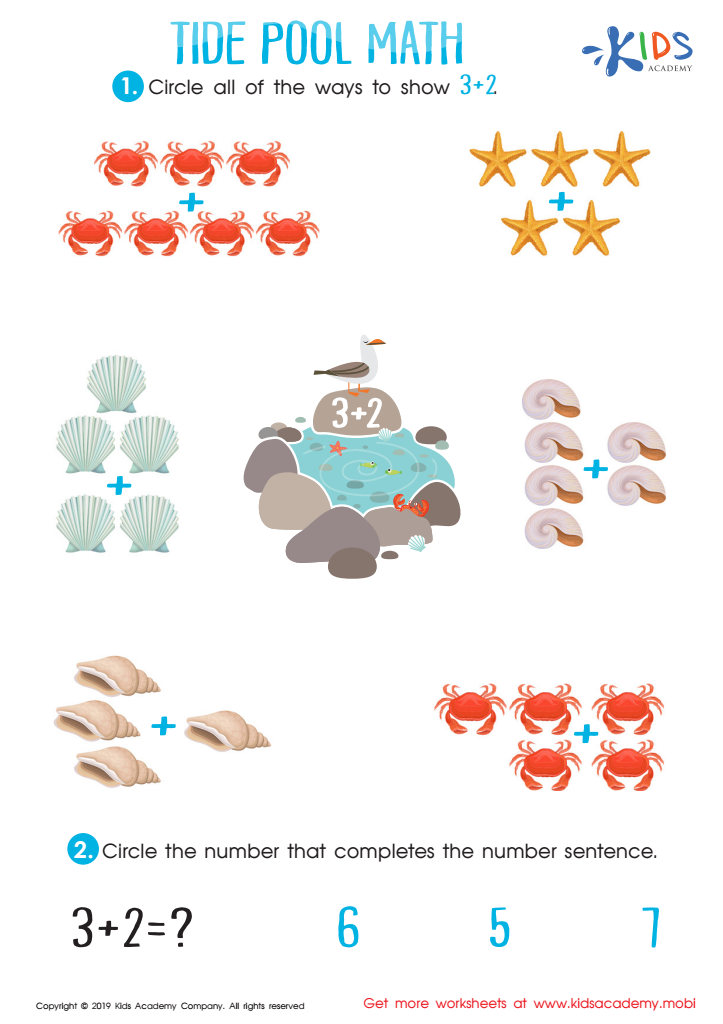

Tide Pool Math Worksheet


Bubbling Over Worksheet
Parents and teachers should prioritize problem-solving skills in math for children aged 4-7 because it lays a strong foundation for future academic success and everyday life. At this formative stage, young minds are highly flexible and alert. Developing problem-solving skills fosters critical thinking, logical reasoning, and the ability to approach challenges with confidence. These abilities do not just apply to arithmetic; they teach children how to think methodically and persist through difficulties, key attributes for lifelong learning and adaptation.
Moreover, early exposure to problem-solving tasks in math encourages curiosity and a positive attitude towards learning. By working through puzzles and real-life scenarios, children experience a sense of accomplishment, boosting their self-esteem and motivation to tackle more complex tasks. These activities enhance a child's ability to articulate thoughts, collaborate with peers, and communicate solutions effectively.
For teachers, integrating problem-solving in math lessons makes subjects more engaging and interactive, promoting active learning. For parents, monitoring and supporting these activities can help identify a child's strengths and areas needing improvement early on. Thus, investing in developing problem-solving skills in math during early childhood can pay significant dividends throughout a child's education and beyond, aiding their overall cognitive and emotional development.
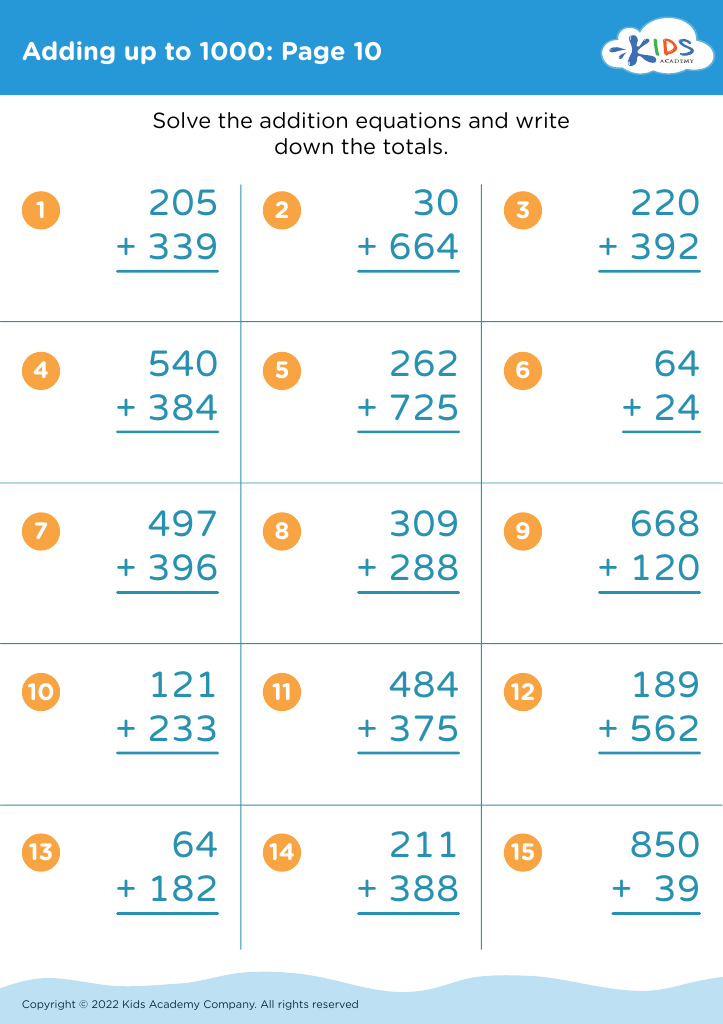

 Assign to My Students
Assign to My Students
